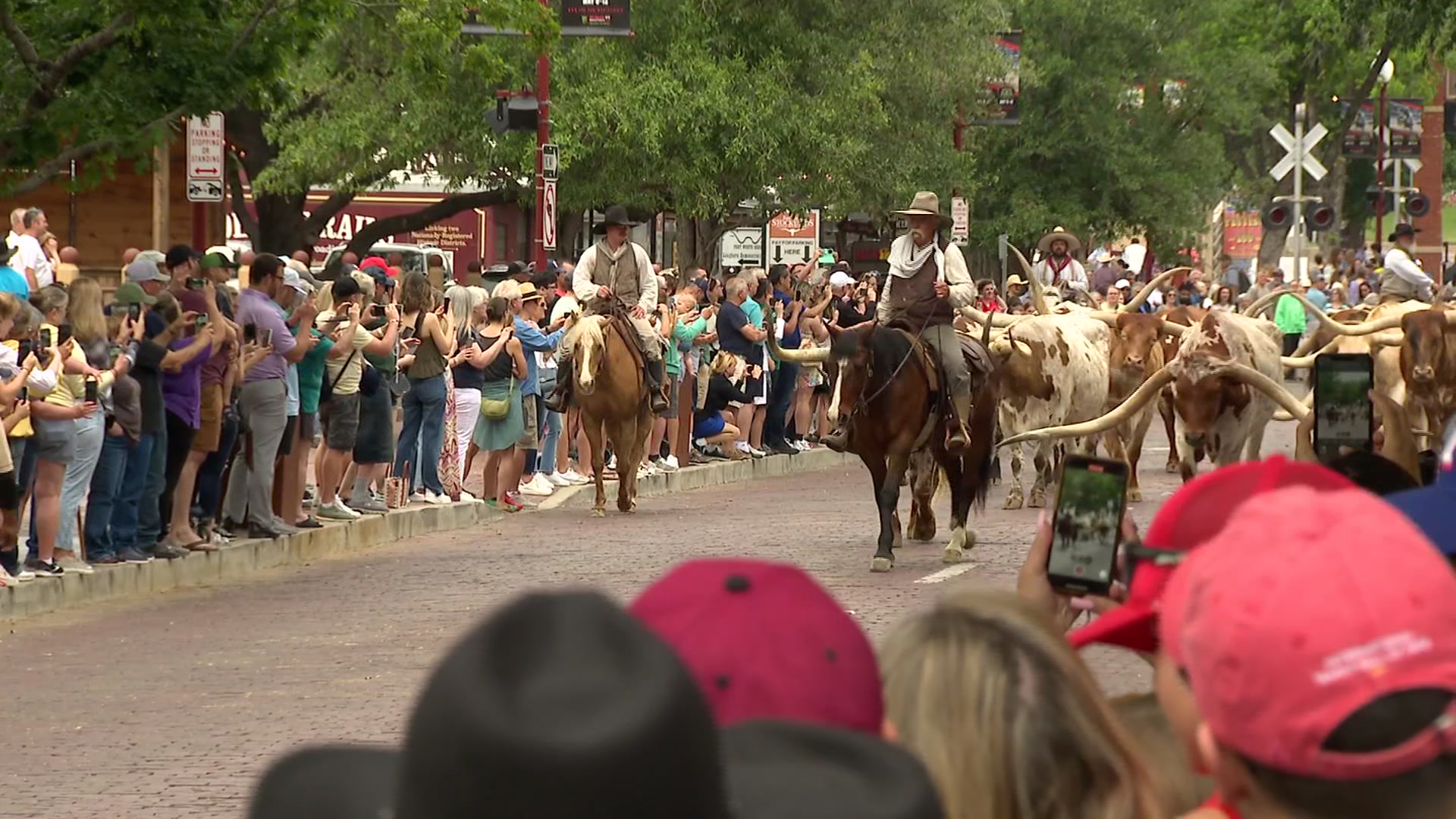A beekeeper carefully removed on Thursday a massive beehive that had formed in the eaves of a home in Denton.
Rob Norton contacted NBC 5 about the beehive at his mother's home on Williamsburg Row.
Norton said his mother had a problem with bees last year.
"It would get to the point where we were both sort of running to and from our cars and trying to see when the bees weren't hanging around because there were like 30 or 40 of them,” he said.
When his mother, Peggy Norton, saw bees buzzing around her home this year, she called a beekeeper, who found the bees hiding in the eaves over her back porch.
Cutting away the eave revealed the rather large beehive, which had actually protruded into the attic of her home.
"I just went, 'Ahhhh.' I was sorry I hadn't called them last summer because I had no suspicion bees could do this,” Peggy Norton said. "The things in there were as long as your arm and as big around as your arm."
It took two beekeepers about two hours to remove the hive.
The beehive consisted of 18 combs. The darker combs are from last year, but beekeepers say the lighter combs are new this year and were only starting to be filled with honey.
Local
The latest news from around North Texas.
The beekeeper from Trutech Pest Removal said it was not the largest hive she has been called to remove. Some actually grow to be significantly bigger, she said.
The best way to tell if you have a bee problem this time of year is to watch for bees consistently coming and going from around your home -- forming a sort of highway of bees, she said.
If you do think you have a problem, it’s important to contact a professional to have them properly removed so the problem doesn’t come back, Trutech said. That also protects some species of bee that are important to the ecosystem, the company said.
In Norton’s case, the bees were an African hybrid which can be particularly aggressive and not useful to beekeepers. However, the colony of bees was moved to private land out in the country, where it can grow without causing problems for humans.
"I'm delighted to have them gone,” Peggy Norton. “I love bees for pollinating things but I really don't need to have my own colony."
Beekeepers returned to the home Friday afternoon to make sure all of the bees, honey and hive were removed. They plan to follow up next week to make sure any scout bees still monitoring the location have moved on.
NBC 5's Brian Scott contributed to this article.



